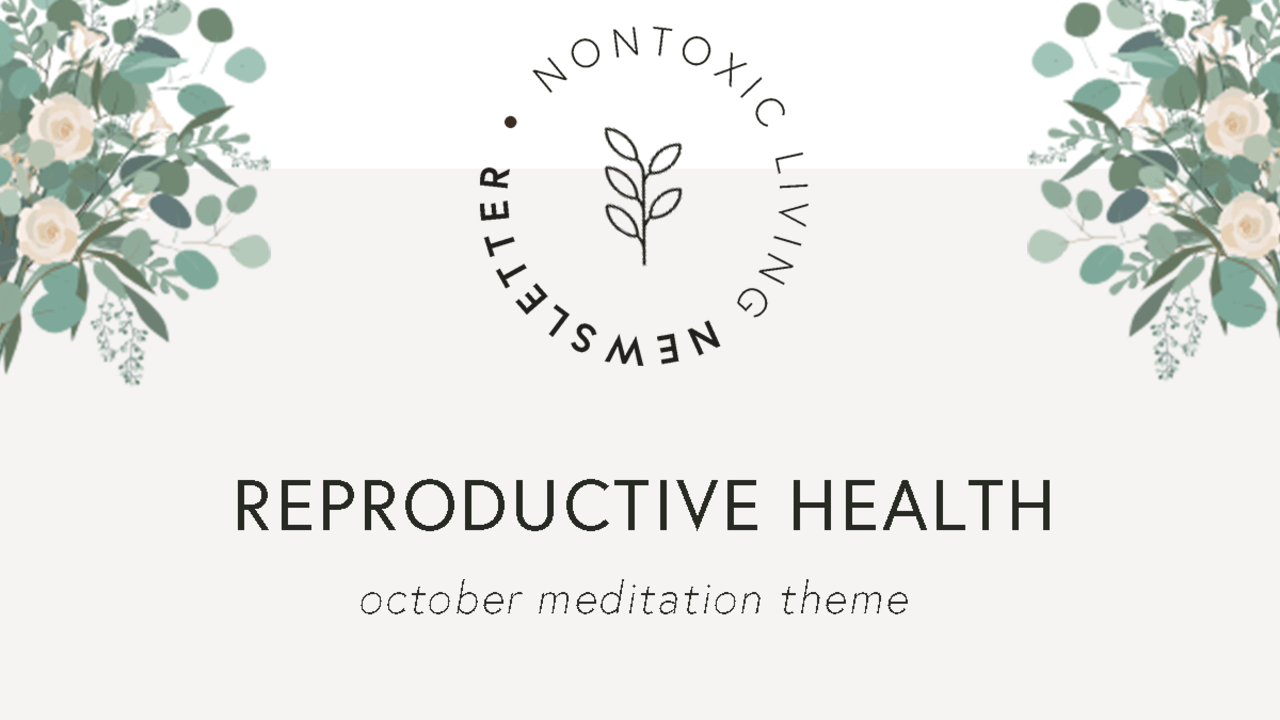
Breast Cancer Awareness Month
Oct 08, 2019Breast cancer is the most common cancer among women worldwide. In the US, it's the second most common cancer among women (after skin cancer)—affecting 1 in 8 women. While rare in men (1 in 1,000), breast cancer affects men directly too.
Studies have been examining whether endocrine disrupting chemicals found in household products can disrupt our reproductive health. The science indicates that, yes, common chemicals—like phthalates and BPA—can increase risks to various reproductive health issues, including breast cancer.
This month, inspired by breast cancer awareness month, our meditation will be on reproductive health since the toxic exposures that increase breast cancer risks also threaten reproductive health. The data is underscoring a precautionary approach towards many avoidable environmental contaminants, especially during certain stages of human development: in utero, puberty, and menopause.
In October, we will explore the avoidable toxic chemicals, heavy metals, and radiation from our technologies that can reduce our risks of breast cancer and other reproductive health issues.
How can toxic chemicals contribute to reproductive health issues?
One key component to this highly complex issue is that many chemicals in household products are known endocrine disruptors. Endocrine disruptors can mimic, block, alter, and/or participate in hormone activities. This could have various effects that are still being studied, including fertility, timing of puberty and menopause, sperm quality, breast cancer risk, and other impacts on reproductive health.
And what about cell phones in male pockets?
Another concern is not just toxic chemicals but also radiation from our technologies, including our cell phones and laptops.
If you are interested in supporting male fertility in your life, below are two simple tips.
- Men should avoid placing laptops on their lap. Studies suggest that laptops on male laps can impair sperm quality.
- And, as often as possible, turn off your laptop's WiFi. Studies have found laptops' radiation emissions to be much lower when WiFi is off.
Do something today!
The good news is that there are many ways to decrease unnecessary exposures to hormone-disrupting chemicals and radiation (aka, EMFs for electromagnetic fields).
For example, reducing your exposures to plastics and canned foods can reduce your exposures to hormone disrupting chemicals, like phthalates and BPA. These measures can both optimize factors that protect your reproductive health and lower your cancer risks. The World Health Organization reports that up to 30-50% of cancers are preventable, and that detoxing from toxic exposures can help with prevention.
Find more tips that can reduce risks for both breast cancer and reproductive health issues in the articles below.
- PCOS: Can banishing endocrine disruptors help PCOS symptoms?
- Overlooked Environmental Contributors to Infertility (& How to Protect Yourself)
- Low Sperm Count: The Link Between Radiation and Fertility
Stay connected!
Click below to register for my newsletter before to stay connected on this topic.
References
(1) Breast Cancer Facts from the National Breast Cancer Foundation, Inc. https://www.nationalbreastcancer.org/breast-cancer-facts



